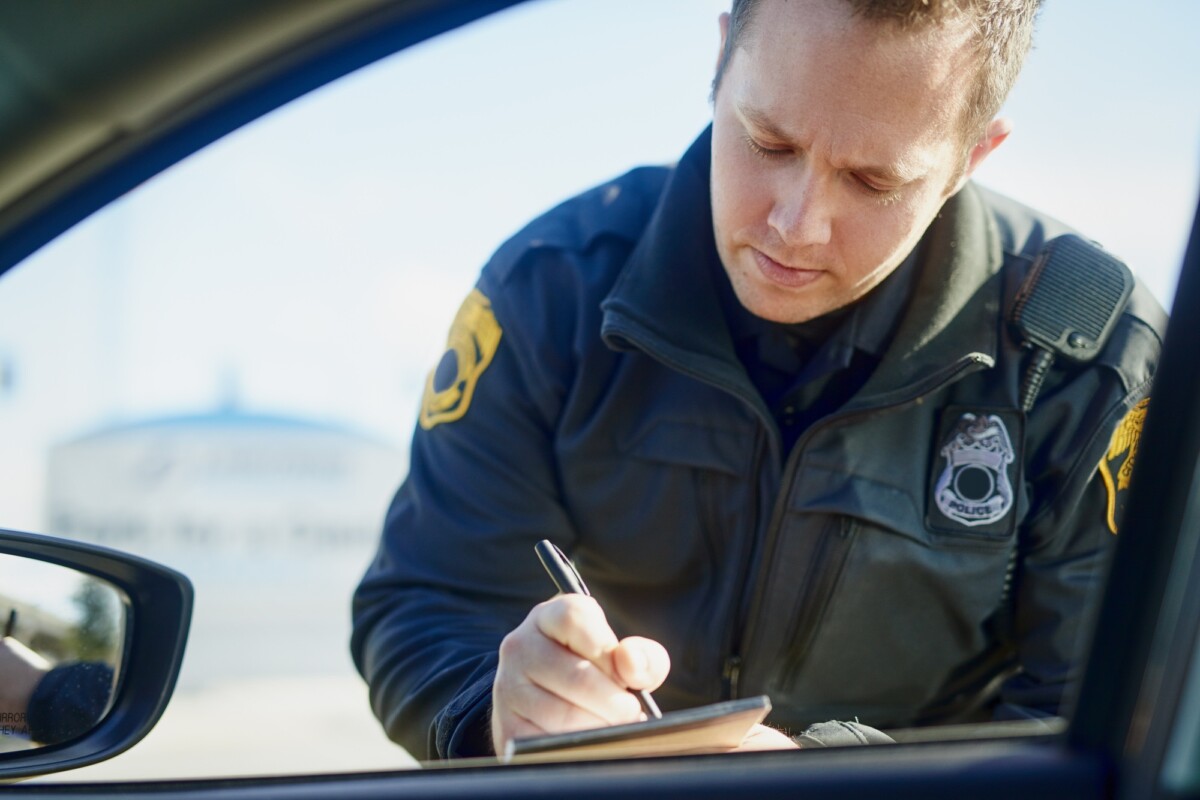Do I Have to Answer Police Questions at a DUI Stop?

Being stopped by police on suspicion of driving under the influence (DUI) can be intimidating and confusing. One of the most common questions drivers ask is: Do I have to answer police questions at a DUI stop? Understanding your rights and knowing how to respond can significantly impact the outcome of your case.
This detailed article explores your legal obligations and rights during a DUI stop, the types of questions police typically ask, and how your answers-or refusal to answer-can affect your case. We also provide practical advice on protecting yourself legally, state-specific considerations, and frequently asked questions. Whether you are in California (ZIP 90001), Texas (ZIP 73301), Florida (ZIP 33101), or elsewhere, this guide will help you navigate the complexities of DUI stops with confidence.
Understanding Your Rights During a DUI Stop
When a police officer pulls you over on suspicion of DUI, you have certain constitutional rights designed to protect you from self-incrimination and unlawful searches or seizures. These rights include:
-
The right to remain silent: You are not required to answer questions that may incriminate you.
-
The right to refuse certain tests: Depending on the state, you may refuse field sobriety tests or chemical tests, although refusal may carry penalties.
-
The right to legal counsel: You can request an attorney before answering questions or submitting to tests.
-
The right to be free from unlawful searches: Police generally need probable cause or a warrant to search your vehicle or person.
Knowing and asserting these rights calmly and respectfully is crucial during a DUI stop.
Protect your future. Get a free DUI case review or call 833-279-1850 today.
Common Police Questions at a DUI Stop
During a DUI stop, police officers typically ask a series of questions aimed at assessing your level of impairment and gathering evidence. Common questions include:
-
“Do you know why I stopped you?”
-
“Have you been drinking tonight?”
-
“How much have you had to drink?”
-
“When was your last drink?”
-
“Where are you coming from?”
-
“Where are you headed?”
-
“Have you taken any medications or drugs?”
-
“Do you have any medical conditions that might affect your driving?”
Officers may also ask you to perform field sobriety tests or submit to breathalyzer tests.
Do You Have to Answer Police Questions?
The short answer is: No, you do not have to answer police questions that may incriminate you.
While you must provide basic identification information such as your driver’s license, registration, and proof of insurance, you are not legally required to answer questions about alcohol or drug consumption, your destination, or other potentially incriminating topics.
You can politely state:
“I choose to remain silent and would like to speak with an attorney.”
This assertion is your constitutional right under the Fifth Amendment and can protect you from self-incrimination.
The Right to Remain Silent and Its Importance
The right to remain silent is a fundamental protection during DUI stops and arrests. Anything you say can be used against you in court, including casual remarks or admissions of drinking.
Remaining silent does not mean you are uncooperative; it means you are protecting your legal rights. Officers are trained to interpret silence in various ways, but your focus should be on preserving your defense.
Consequences of Answering or Refusing to Answer
Answering Questions
-
May provide evidence used against you.
-
Can lead to admissions that strengthen the prosecution’s case.
-
Officers may use your statements to establish probable cause for arrest.
Refusing to Answer
-
Cannot be used as evidence of guilt in criminal court (due to constitutional protections).
-
May frustrate officers but is your right.
-
Refusal to answer may sometimes lead to arrest if officers believe you are impaired.
Implied Consent Laws and Chemical Testing
In most states, implied consent laws require drivers to submit to chemical tests (breath, blood, or urine) if lawfully arrested for DUI. Refusing these tests can result in:
-
Automatic license suspension.
-
Fines and additional penalties.
-
Use of refusal as evidence in court.
It is important to understand your state’s implied consent laws and the consequences of refusal.
If you are unsure about your rights regarding chemical testing, consult with a DUI attorney or call 833-279-1850.
How to Handle Field Sobriety Tests and Breathalyzers
Officers may ask you to perform field sobriety tests (FSTs) such as the walk-and-turn or one-leg stand. These tests are subjective and can be influenced by medical conditions, nervousness, or environmental factors.
You may have the right to refuse FSTs in some states without immediate penalty, but refusal can lead to arrest or be used against you in court.
Breathalyzer tests are chemical tests that provide evidence of BAC. Refusal to submit to breathalyzer tests after arrest generally triggers penalties under implied consent laws.
State-Specific Considerations
DUI laws and rights during stops vary by state. For example:
-
California (ZIP 90001): You must provide identification but can refuse to answer questions about drinking. Refusal of chemical tests leads to license suspension.
-
Texas (ZIP 73301): Similar rules apply; refusal of tests can lead to administrative penalties.
-
Florida (ZIP 33101): Officers may arrest based on observations even if BAC is below 0.08%. Refusal to test leads to automatic suspension.
Always consult local laws or a qualified attorney in your jurisdiction.
Common Mistakes to Avoid During a DUI Stop
-
Volunteering unnecessary information or admitting guilt.
-
Arguing or being confrontational with officers.
-
Failing to provide required documents.
-
Ignoring officer instructions during tests.
-
Refusing chemical tests without understanding consequences.
Have more questions? Speak with a DUI lawyer now or call 833-279-1850 for expert advice.
Why You Need a DUI Attorney
A DUI stop can lead to complex legal challenges. An experienced DUI attorney can:
-
Explain your rights and options.
-
Challenge the legality of the stop and evidence.
-
Negotiate plea deals or reduced charges.
-
Represent you in court and administrative hearings.
-
Help protect your driving privileges and minimize penalties.
Knowing whether you have to answer police questions at a DUI stop is vital to protecting your rights. Always remember your right to remain silent, be polite, and seek legal counsel promptly if you are stopped or arrested.
If you or a loved one is facing DUI charges, don’t wait. Get a free case review with an experienced DUI attorney or call 833-279-1850 now.
Disclaimer: This article is for informational purposes only and does not constitute legal advice. Laws vary by state and individual circumstances. Consult a qualified attorney for advice specific to your case.
For more information, visit the National Highway Traffic Safety Administration or your state’s Department of Motor Vehicles website.
Frequently Asked Questions (FAQs)
1. Do I have to answer if the officer asks if I’ve been drinking?
No, you have the right to remain silent.
2. Can I refuse field sobriety tests?
In many states, yes, but refusal may lead to arrest or be used against you.
3. What happens if I refuse a breathalyzer?
You may face license suspension and other penalties under implied consent laws.
4. Can I ask for a lawyer during a DUI stop?
Yes, you have the right to legal counsel.
5. Should I be polite even if I remain silent?
Yes, remaining calm and respectful is important.
6. Can my silence be used against me in court?
No, the Fifth Amendment protects against self-incrimination.
7. What if I have medical conditions affecting sobriety tests?
Inform the officer and your attorney to protect your rights.


